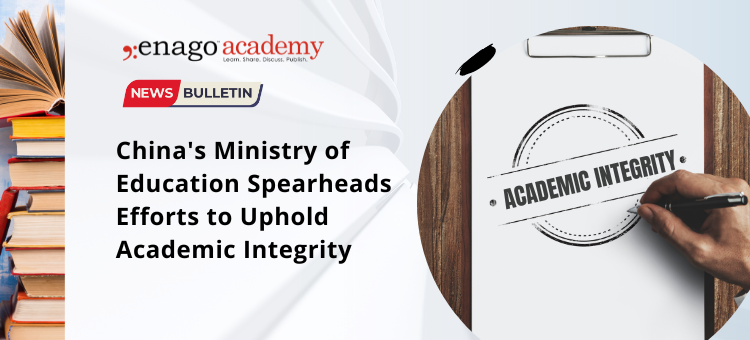China’s Ministry of Education Spearheads Efforts to Uphold Academic Integrity

In response to the increase in retractions of research papers submitted by Chinese scholars to foreign publications last year, China’s Ministry of Education (MOE) has taken a more vigilant stand, directing universities to probe into possible breaches of academic integrity. Many universities, following the direct mandate emphasizing affirmative actions from the authorities, have launched investigative campaigns to examine retracted papers with the objective of identifying any violations of academic ethics. These steps taken by the government reflect its commitment to preserving the credibility of China’s research on the global stage.
Reported Incidents that Need Attention to Uphold Academic Integrity
A study, based on the Retraction Watch Database, revealed that China contributed to 16.12% of the total retracted papers in the field of technology-related research globally. Recognizing the potential impact on the nation’s scientific credibility, China’s MOE has taken affirmative and stricter measures to address these issues. Such efforts by the MOE is crucial not only for maintaining international trust but also for developing a safe research environment that encourages innovation and contributes meaningfully to global knowledge.
Investigations conducted by China’s MOE revealed that retractions of papers are mostly due to manipulation during peer review, fabricated experiments, and ghostwriting, indicating the role of ‘paper mills’—underground, illegal entities that mass-produce and sell academic papers to researchers.
Counteractive Response by China’s Ministry of Education and Institutions
Taking a direct stance against such incidents, China’s MOE has mandated universities, including Henan Finance University, to investigate potential breaches of the ethical boundaries in retracted papers. The MOE has specifically provided a list of such papers to provincial departments, instructing universities to investigate researchers throughout the research process, from ideation to paper submission.
Following these guidelines, universities like Henan Finance University, Wuhan University, and Shandong University have directed research scholars to search academic databases and compile a list of retracted papers post-2020. Authors of these papers will then verify the reasons for retractions, signing a declaration of their academic integrity in case of no misconduct, or facing punishments according to the rules in case of misconduct.
In 2021, the Bureau on Scientific Education under the MOE released a list of 100 cases related to misconduct in the field of medical research. Individuals found guilty had to face severe consequences (fines, restricted project applications, and promotions).
Another revolutionary step taken by China’s MOE includes implementation of ethical regulations, demonstrating its commitment to addressing ethical concerns in scientific research. Furthermore, authorities are working to establish a long-term mechanism aimed at preventing such occurrences from happening. Such proactive approach by China’s ministry aligns with the objective of the research community to produce high-quality research papers rather than a greater quantity of low-quality papers.









